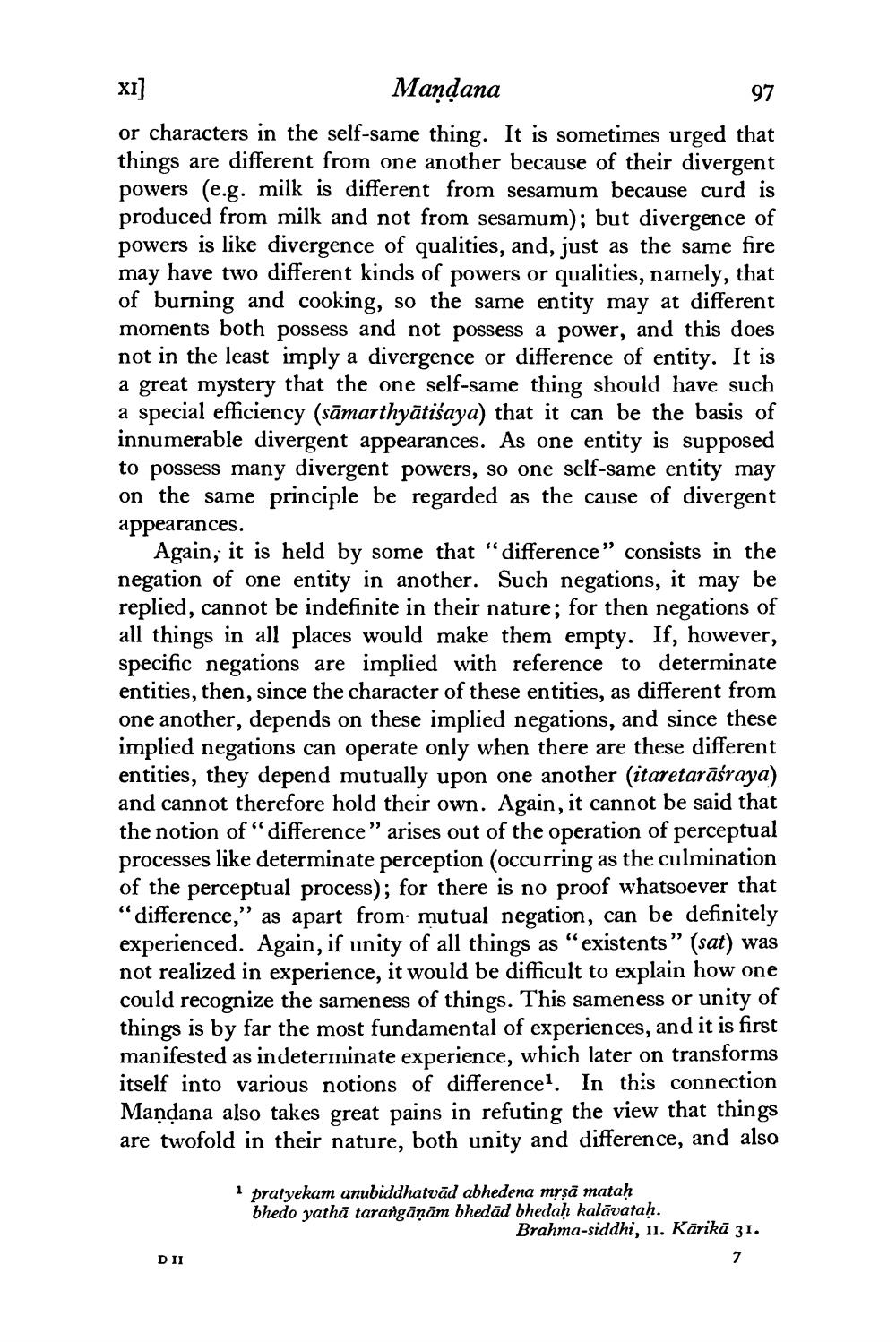________________
XI]
Mandana
97
or characters in the self-same thing. It is sometimes urged that things are different from one another because of their divergent powers (e.g. milk is different from sesamum because curd is produced from milk and not from sesamum); but divergence of powers is like divergence of qualities, and, just as the same fire may have two different kinds of powers or qualities, namely, that of burning and cooking, so the same entity may at different moments both possess and not possess a power, and this does not in the least imply a divergence or difference of entity. It is a great mystery that the one self-same thing should have such a special efficiency (sāmarthyātiśaya) that it can be the basis of innumerable divergent appearances. As one entity is supposed to possess many divergent powers, so one self-same entity may on the same principle be regarded as the cause of divergent appearances.
Again, it is held by some that "difference" consists in the negation of one entity in another. Such negations, it may be replied, cannot be indefinite in their nature; for then negations of all things in all places would make them empty. If, however, specific negations are implied with reference to determinate entities, then, since the character of these entities, as different from one another, depends on these implied negations, and since these implied negations can operate only when there are these different entities, they depend mutually upon one another (itaretarāśraya) and cannot therefore hold their own. Again, it cannot be said that the notion of "difference" arises out of the operation of perceptual processes like determinate perception (occurring as the culmination of the perceptual process); for there is no proof whatsoever that "difference," as apart from mutual negation, can be definitely experienced. Again, if unity of all things as "existents" (sat) was not realized in experience, it would be difficult to explain how one could recognize the sameness of things. This sameness or unity of things is by far the most fundamental of experiences, and it is first manifested as indeterminate experience, which later on transforms itself into various notions of difference1. In this connection Mandana also takes great pains in refuting the view that things are twofold in their nature, both unity and difference, and also
DII
1 pratyekam anubiddhatvad abhedena mrṣa mataḥ bhedo yatha tarangāṇām bhedad bhedaḥ kalavataḥ.
Brahma-siddhi, 11. Kārikā 31. 7




